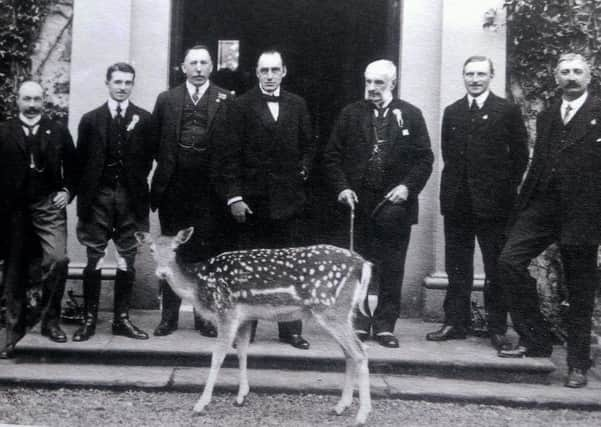Ballymena 1914 - Home Rule divisions deepen


There had been two previous attempts to grant Ireland its own legislature but thse had been defeated by the veto powers of the House of Lords, which feared it would be the beginning of the end for the British Empire.
In 1910, Herbert Asquith’s Liberal government had fought two general elections and could only hold onto power by forming a political alliance with the Irish Nationalist Party. In exchange for supporting the government, Nationalist leader John Redmond wanted something in return – Home Rule.
Advertisement
Hide AdAdvertisement
Hide AdOne of the major problems faced by Asquith was appeasing those in Ulster who were against any form of Home Rule.
The opposition to Asquith in Parliament adopted the title of the Unionist Party. It comprised of an assortment of parties but was dominated by the Conservatives.
Before 1910, the Unionists had put their faith in the House of Lords rejecting any form of Home Rule Bill – as proved to be the case in 1886 and 1893. After the Parliament Act of 1911, when the Lords’ veto powers were diluted, they could no longer do this. The Unionists feared that any form of Home Rule would lead to the break-up of the United Kingdom. In this they had the full support of many.
On 11 April 1912, Prime Minister Asquith delivered on his side of the electoral pact when he introduced the Third Home Rule Bill to the utter consternation of Unionists and Conservatives.
Advertisement
Hide AdAdvertisement
Hide AdThe main issue of contention during the parliamentary debates which followed was the “Ulster Question” and the fears of the pro-Union majority in the prosperous northern counties of Ireland who believed ‘Home Rule’ equated to ‘Rome Rule.’
Months of political manoeuvring and shadowy meetings followed as the crisis deepened.
Eventually, Asquith came up with a compromise which would see the six counties of the northeast of Ireland (roughly two-thirds of Ulster), where there was arguably or definitely a Protestant majority, excluded “temporarily” from the territory of the new Irish parliament and government. These six counties would continue to be governed as before from Westminster and Whitehall. How temporary the exclusion would be, and whether North-East Ireland would eventually be governed by the Irish parliament and government, remained an issue of some controversy.
But with the outbreak of war with Germany in August 1914, Asquith decided to abandon his various intrigues and instead rushed through the Suspensory Act 1914 which ensured that Home Rule would be postponed for the duration of the conflictand would not come into operation until the end of the war. The Ulster question was ‘solved’ through the promise of amending legislation which was left undefined.
Advertisement
Hide AdAdvertisement
Hide AdUnionists were in disarray, wounded by the enactment of Home Rule. and by the absence of any definite arrangement for the exclusion of Ulster. The Unionist opposition in Parliament claimed that this manouevure by Asquith was a breach of the political truce agreed on at the start of the war.
However, with the Home Rule Bill effectively put into limbo, and the arguments surrounding it still capable of being resurrected before home rule was actually to come into operation, Unionist politicians soon left the issue aside in the face of more pressing war concerns. Nationalists, in the belief that independent self-government had finally been granted, celebrated the news with bonfires alighting the hill-tops across the south of Ireland. But as the Act had been suspended for the duration of what was expected to be a short war, this decision was to prove crucial to the subsequent course of events.
The outbreak of the war ended the Home Rule Crisis at a stroke. Carson committed his Ulster Volunteers to the war effort, and when on 3 August 1914 Redmond, in the House of Commons, said that the Irish Volunteers would undertake the defence of Ireland, in co-operation with the Ulster Volunteers, the Foreign Secretary, Sir Edward Grey, said that “the one bright spot in the very dreadful situation is Ireland. The position in Ireland...is not a consideration among the things we have to take into account now.”
On 18 September 1914 the Home Rule Bill received Royal Assent, but at the same time a Suspensory Act was passed to stop it coming into effect until after the war, and it was made clear that an Amending Act would be re-introduced before it became operative.